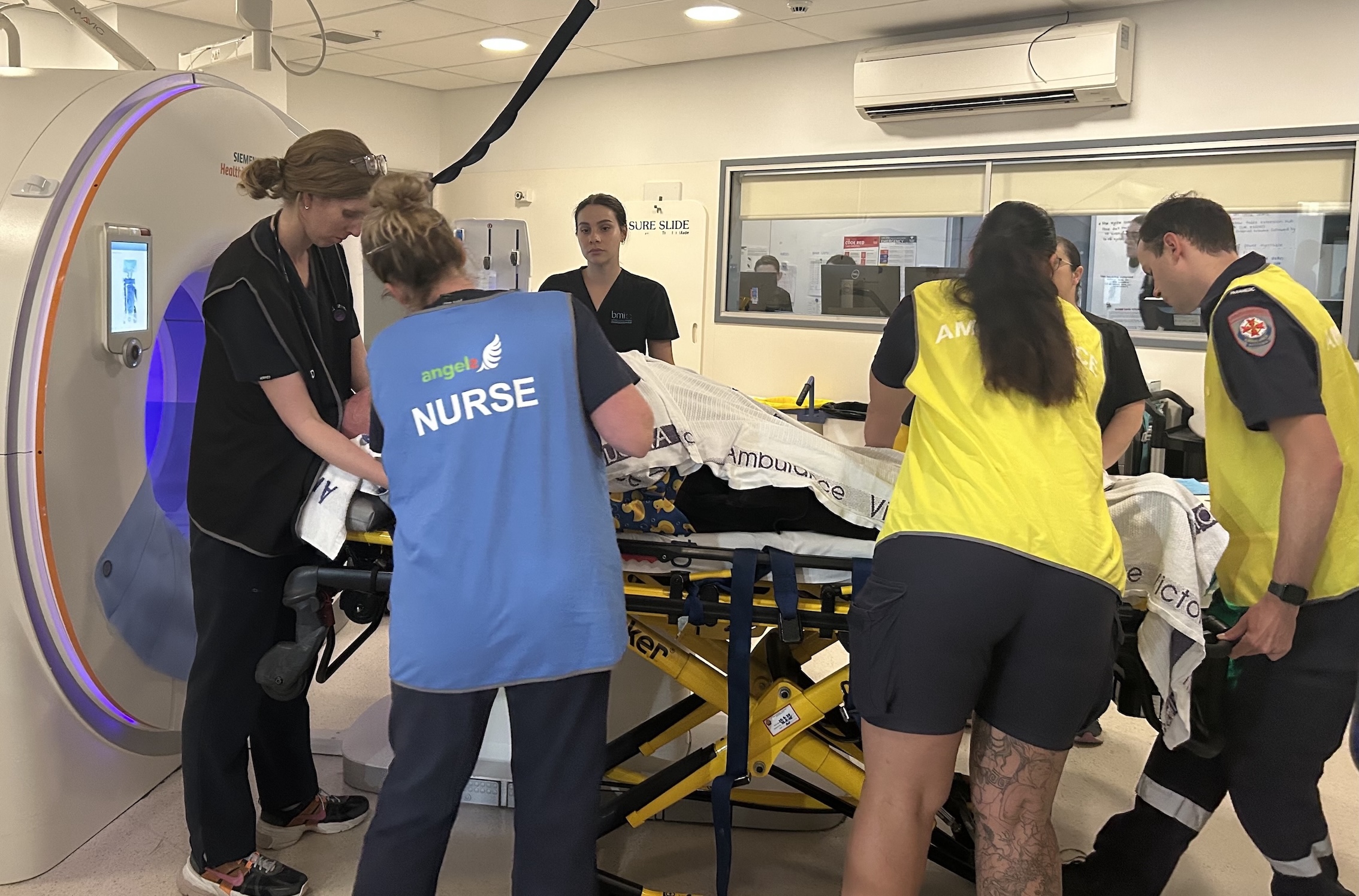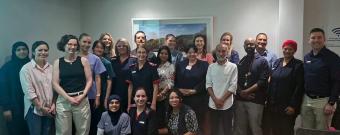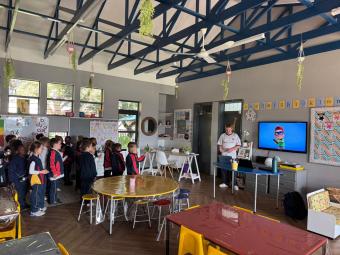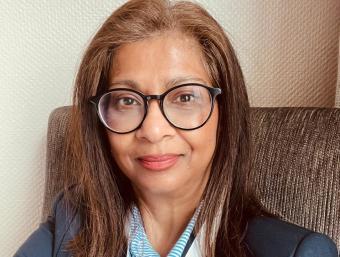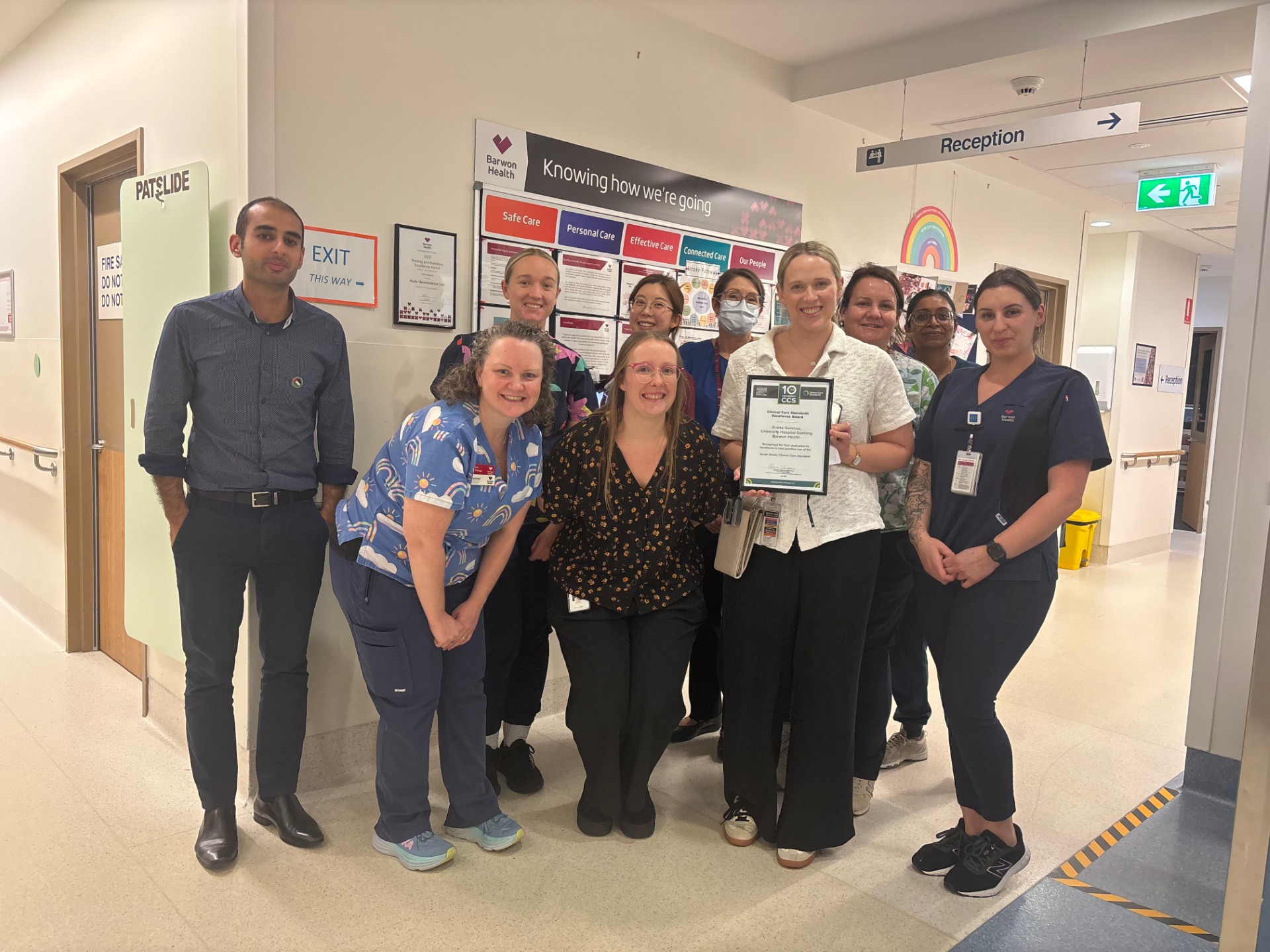
A hospital in Canberra took steps to safeguard the effectiveness of antimicrobial medicines. A health network in South Australia designed a sepsis pathway tailored to local needs. A local health district in New South Wales built a robust new colonoscopy audit process. A major public healthcare provider in Victoria raised the standard of opioid safety by making opioid management plans part of its electronic medical records system.
And at University Hospital Geelong in Victoria’s regional southwest, a stroke pathway simulation provided a breakthrough that lead to faster treatment and better outcomes.
These are all examples of how patients win when implementing evidence-based clinical care standards improves healthcare quality – and they have all been recognized as Stories of Excellence in a campaign to celebrate 10 years of Clinical Care Standards in Australia.
In every instance, the journey to better healthcare begins with a rigorous examination of current practice, informed by the quality statements contained in the relevant clinical care standard. In all cases it entails asking the right questions, scrutinizing the data, setting new priorities, and connecting data to action. But in Geelong, there’s a turning point when some careful scheduling sees a multidisciplinary team of EMS and hospital staff participate in a simulation of their response to a stroke emergency.
Weeks of preparation will crystallise in 45 minutes that will have far-reaching consequences. Participants will have an opportunity to scrunitize and reflect on their own performance, learn about roles and responsibilities up and down the pathway, receive feedback on areas for improvement, and reach consensus about the actions that will deliver change. These will include improving prehospital notifications to allow staff to prepare for incoming stroke patients, streamlining triage for rapid identification and escalation, and refining CT imaging workflows to reduce delays.
Their median door-to-needle time will shrink from 71 minutes (in 2022 )to just 46 minutes in 2024, and the percentage of patients treated within the recommended 60-minute window will increase from 19 percent in 2022 to 53 percent in 2023, and 75 percent in 2024, reaching 80 percent in 2025.
Early in 2024, their commitment to better stroke care will be recognized with the first of five WSO Angels Awards, and in July 2025, they will be among five Australian health services honoured with a 10th Anniversary Clinical Care Standards Excellence Award.
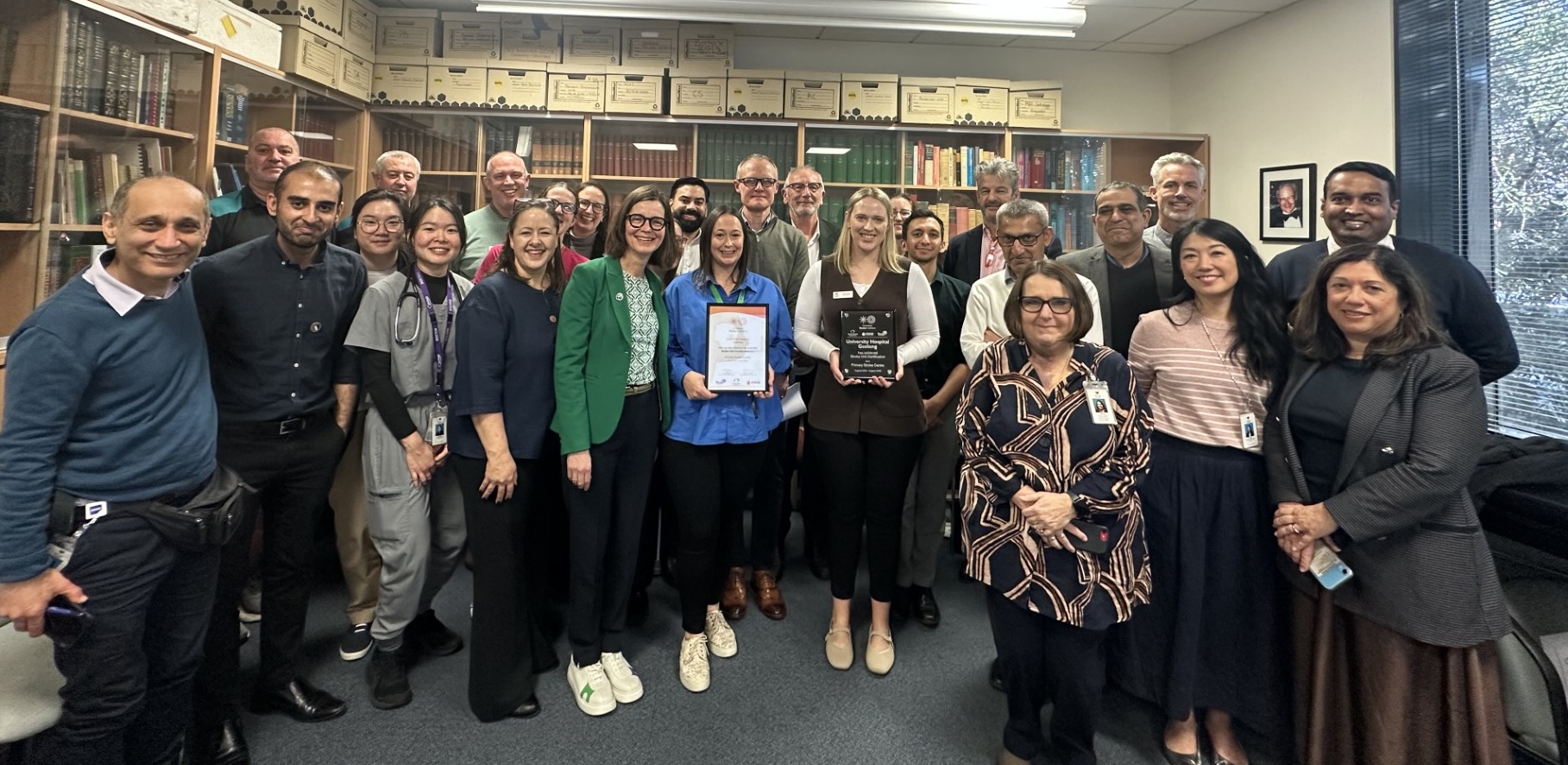
Caregiver to changemaker
Michelle Clarke had been a stroke nurse for about eight years when she became stroke coordinator at University Hospital Geelong in 2022. She’d done post-grad work in the neurosciences, and for her masters in nursing focused on stroke neurology. Making a significant difference to the quality of life of patients made her stroke unit work rewarding, but she was curious about the hyperacute phase and the opportunity to make an impact in the minutes and hours after a stroke patient arrived.
Mentored by the previous stroke coordinator, Michelle developed a passion for acute stroke care, and when the role became vacant, she put up her hand. What began as a temporary assignment soon became a calling.
Months into her new role, and facing significant challenges as a result of the Covid-19 pandemic, a report revealed that University Hospital Geelong was lagging behind the national benchmark for acute stroke care. A downward trend had been flagged in 2021, but data from the Australian Stroke Clinical Registry (AuSCR) showed the ratio of patients treated within the recommended timeframe of 60 minutes had slipped even further, from 26 percent to 19 percent.
“It was my first year in the role of stroke coordinator and when I got the report I was feeling overwhelmed,” Michelle says. “I took this opportunity to identify the gaps in our systems and start afresh to implement some changes.”
Making a level-headed decision to start small and set realistic goals, Michelle opted for a strategy of building relationships, assembling a multidisciplinary team and “getting to know each other”. She also embraced mentorship, tapping into a network of stroke services that had overcome similar challenges, such as Melbourne’s Box Hill Hospital, clinical home of stroke nurse consultant, ASNEN co-chair and Angels collaborator Tanya Frost.
These tactics formed the foundation of Michelle’s stroke care improvement program until August 2023, when she attended the annual Smart Strokes conference and got to know Angels team leader (for Australia, New Zealand and Papua New Guinea) Kim Malkin, and Angels consultant Samantha Dagasso.
Kim and Sam gave a presentation on pathway simulation training that demonstrated how it impactful it had been at other hospitals, and once she was back in Geelong, Michelle started the groundwork for what would become know as “the simulation that changed everything”.
One of the main benefits of simulation is that it primes minds for change. It puts a magnifying glass over the pathway performance, challenges perceptions, and commits the team to a set of realistic goals. During the 15-minute post-simulation debriefing supported by Sam and Box Hill’s Tanya Frost, a map was already starting to emerge of the future of stroke care at University Hospital Geelong.
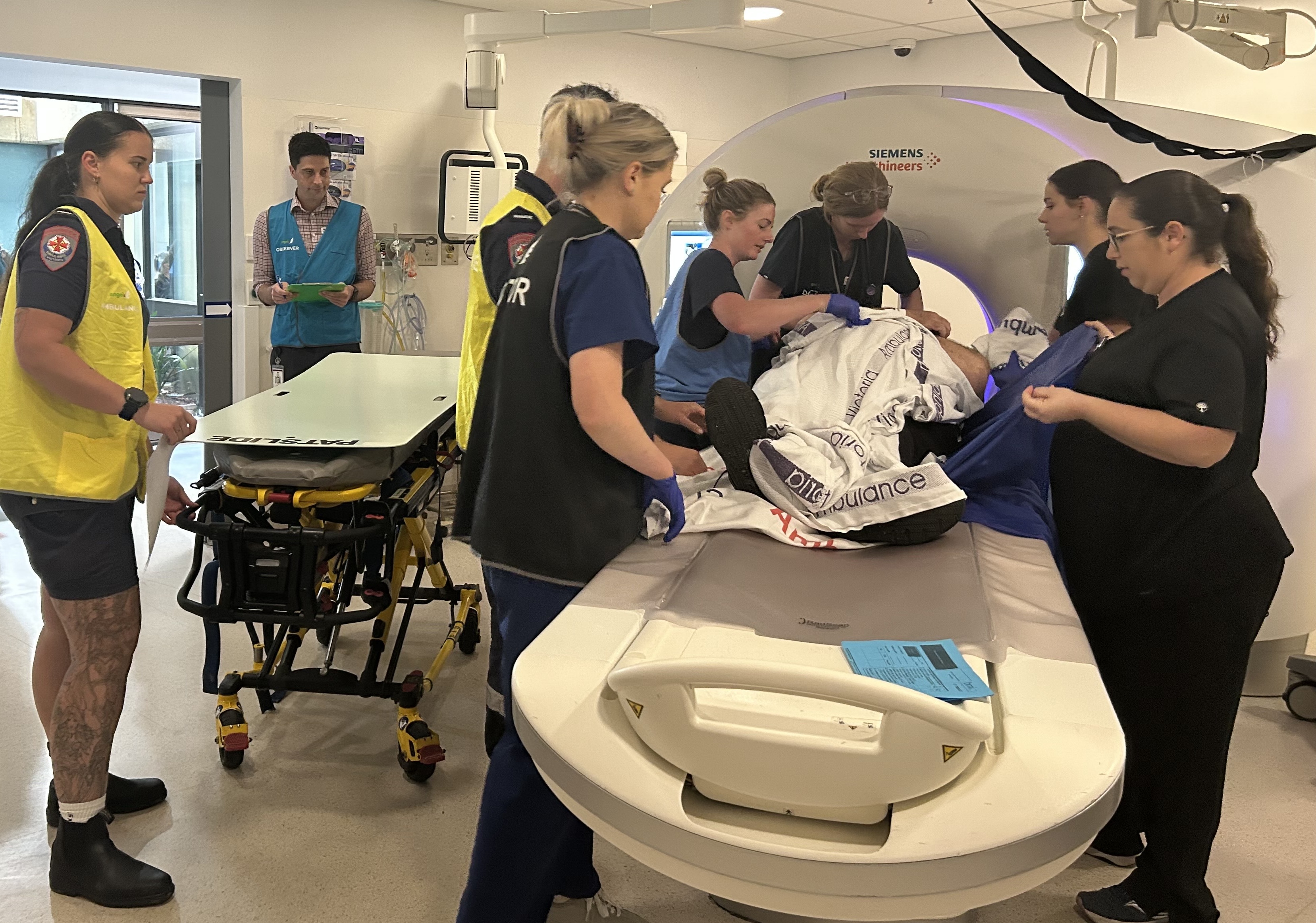
A demonstration of excellence
Michelle was on maternity leave when the winners of the 10th Anniversary Clinical Care Standards Excellence Awards were announced. Four months earlier there had been a last-minute sprint after Kim spotted the submission deadline on LinkedIn and realized that Geelong had a story to tell and just three days in which to do it. After 72 hours of intense collaboration, all they had left to do was get back to work and wait for the results.
When these came, a few weeks later than expected, it was Jade Mallia who took the call. Right after she hung up, she called Michelle.
They both experienced feelings of shock and disbelief. It wasn’t so much that they had finished ahead of health services from across Australia, as that it felt like a victory for stroke. “It was really awesome for stroke care in Australia,” Jade says. “It wasn’t just for us but also the others we’d learnt from.”
Like Michelle, Jade is someone who puts up her hand. A stroke nurse for 15 years, she’d previously volunteered to cover Michelle’s annual leave and loved it. “It was a different challenge,” she says. “Hyperacute care in the emergency department, seeing how you can make a difference, watching the thrombolysis take effect, it’s in another realm. It gave me passion and energy for my work again.”
When Michelle went on eight months’ maternity leave, Jade stepped up again, and they now share the role of stroke coordinator. They also share a belief that nurses make a positive difference in every stroke phase.
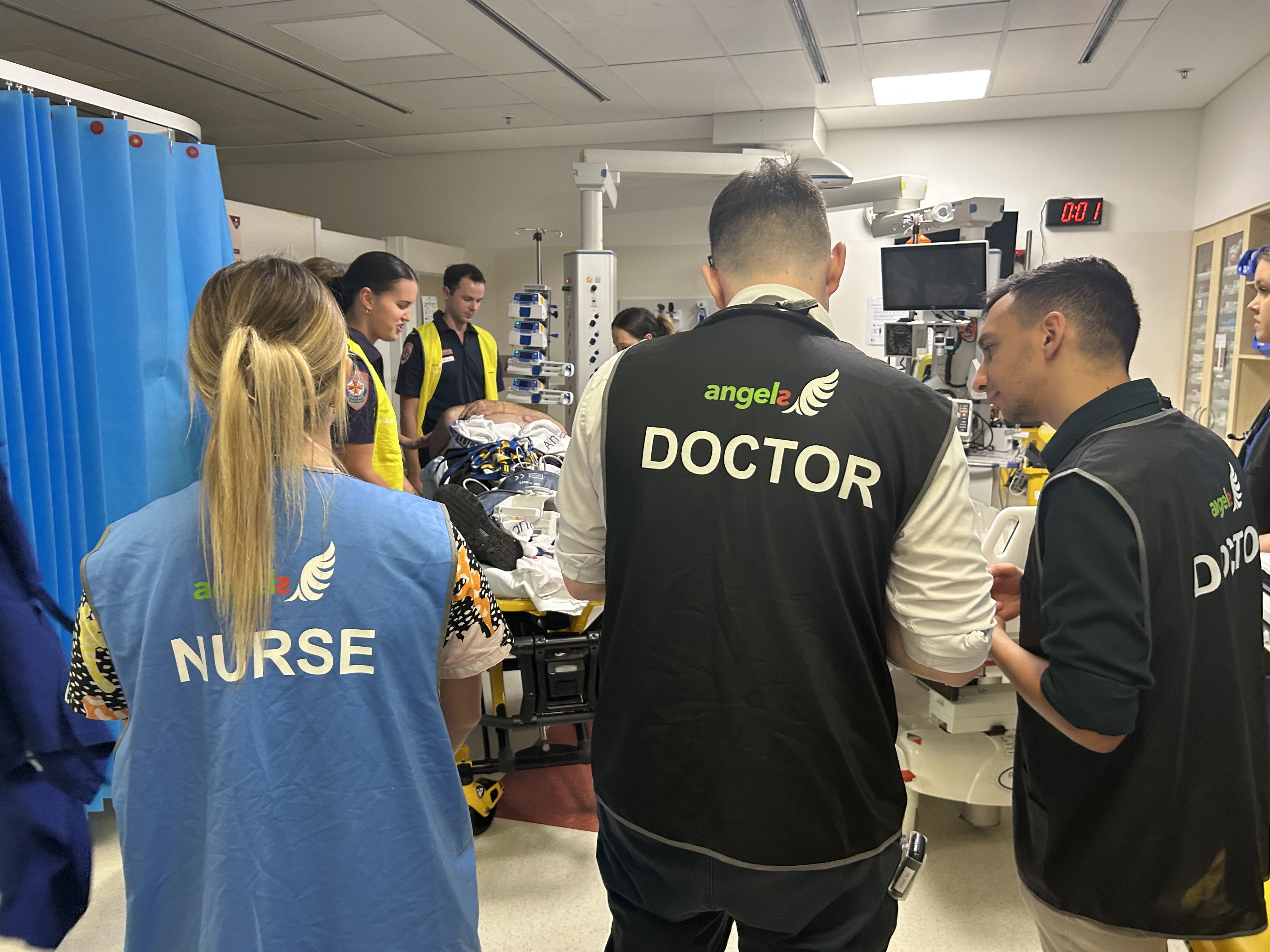
“Nurses play such a valuable part in how patients are treated,” says Michelle who, during 2023 and 2024 when Geelong Hospital was still bedding down its new stroke protocol, attended as many stroke codes as possible after hours when nursing care is more sparsely distributed.
Nurse have massive impact on stroke care, Jade concurs. “We are the backbone of the stroke service, and the biggest advocates for patients. We redirect the focus in the hospital from beds and patient flow to what is best for the patient.
“We are the most stable, because doctors change and rotate. We have the most experience in stroke care, and we spend more time with the patients and their families.”
“It’s quite emotional,” Michelle says of the eight-and-a-half-hour shifts during which stroke nurses provide hands-on care, education and solace to traumatised patients and their distraught loved ones, and build ties that the patients and carers will carry gratefully into their new lives.
Meanwhile, the mission to improve the stroke service at University Hospital Geelong continues to shape practice via daily mutidisciplinary team huddles to share patient treatment and discharge plans, real-time dashboards and AuSCR monitoring to track and benchmark performance, quarterly reviews to spot and respond to emerging issues, and ongoing simulation-based training for onboarding and continuous learning.
Their next target is reducing door-in-door-out times to below 60 minutes via a series of interventions such as ID flags for stroke patients, feedback emails sharing targets, a fact sheet for Ambulance Victoria on in-transfer blood pressure checks, and recruiting stroke champions; their next simulation will be their third.
The nurse-driven success of the stroke program at University Hospital Geelong is an uplifting demonstration of what happens when excellence in relation to a clinical care standard meets empathy. It is also a masterclass in how nursing power can shape healthcare practice and policy.
